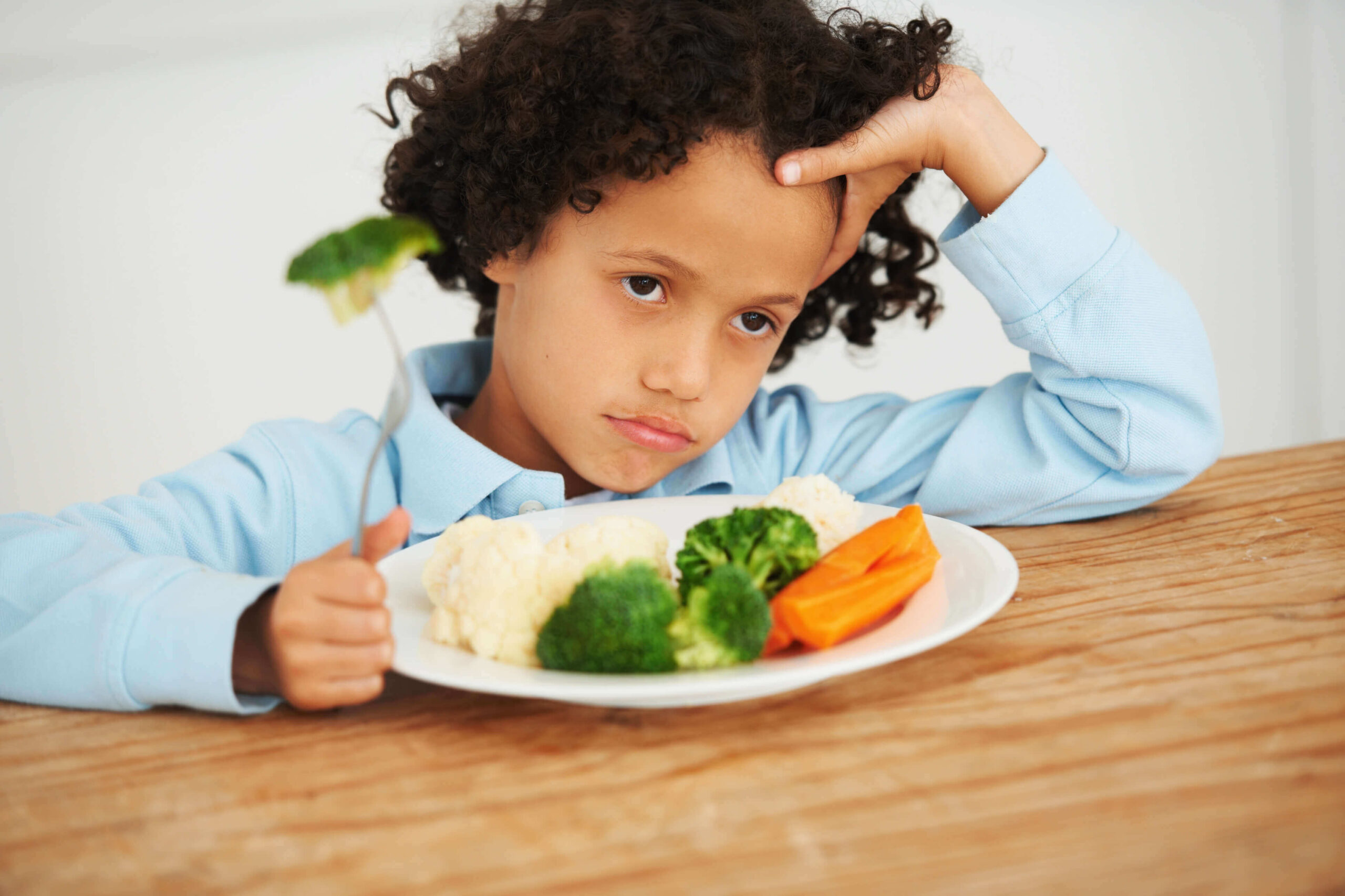One of the mainly annoying things for a parent is the child who will not eat. We hear a lot regarding overeating, but what’s following the child who will not eat or don’t eat sufficiently?
When it comes to eating behavior, toddlers can be tough to guess.
Some days they may perhaps not eat much. Some days it seems like they are eating every day long. They may perhaps wish for one food each day for weeks, and then unexpectedly not like it to any further extent.
Why Toddlers Refuse to Eat Anything

There are quite a lot of reasons that your toddler refuses to eat anything and it’s not at all times for the reason that he doesn’t like the food that’s presented.
The majority of you know how annoying mealtime can be when you attempt something new or poorer when you serve up something they have eaten earlier than and then say no to eat. Most kids will act this infrequently, but for some, it is a manner of life.
In this article, we will discuss the 10 reasons why your toddler refusing to eat dinner suddenly along with the fine tips and techniques to get rid of this problem.
Reasons for Toddler’s Refusal to Eat Dinner
1. Your Child has Slowed Growth
Approximately at age two or three, your toddler’s growth slows down, and his hunger follows. It’s no concurrence that this is accurate around the time that selective eating begins.
This is a frequent cause of why your child will not eat. This goes for school-age kids as well they are stable growers and their hunger stays quite steady. Thinking that they will be rapid growers at this age is merely not right.
2. Your Child is a Fussy Eater
It’s not beyond the rule for toddlers to be picky eaters, as this stage is part of the developmental phase almost all children pass throughout. You can create this phase drag out by exasperating your child to eat, bribing him with dessert, or taking away privileges (or foodstuff) if your child will not eat.
3. The Sensory Connection

One of the surprising reasons that your toddler stopped eating is because of the sensory connection. Imagine a sensation that’s actually painful to you, like nails on a chalkboard similarly children don’t find some foodstuff appealing or comfortable to eat.
For example, they are not refusing to eat the chicken since they simply don’t feel like eating it. It’s for the reason that it’s really actually uncomfortable to them and not finding it tempting to their sensory connection.
4. Your Child Experiences Too Much Pressure
The study shows that children who are pushed to tang food or take one more bite may perhaps eat less sound and less healthfully. Or they may perhaps do the contradictory, and eat actually well ahead of their taste, and maybe too much.
If your child is in a fussy eating phase, pressuring her may blackout her hunger, causing early tastiness. Nagging your child to eat frequently gets similar results.
5. Uncoordinated Oral Motor Strength

This is one that actually doesn’t get discussed a lot. It’s, in fact, your child’s capability to chew up their food. When babies are learning how to chomp or as toddlers if they are putting foodstuff into their mouths and they are spitting it out or it falls out of their mouth, they almost certainly don’t have the organization and the potency that they require to be capable to chew the food well. When this occurs, they simply start avoiding eating all in all.
6. Your Child has a Food Allergy
A number of children don’t eat sufficient due to food allergy, particularly if they have numerous food allergies. With potentially a lot of food restrictions and diet boundaries to leave these children may perhaps be fed up with their everyday diet and eat less well.
7. Your Child has Super Sensitive Taste Buds
The taste of sour is sharp in some children, particularly for the super-taster, and can outcome in choosy eating, particularly of vegetables. Approaching veggies may deteriorate the situation.
8. Your Child has Underlying Medical Issues

If you are not observing a sensory cause at all, and you are not seeing that they are having some difficulty in chewing or moving the food around in their mouth, it’s truly, really significant to think about a fundamental medical reason for their struggles.
When kids have a well recognized medical situation or are evidently sick, it is obvious that their eating can be affected, but sometimes there are additional restrained issues.
Acid reflux is almost certainly the mainly common, but there’s an entire host of other kinds of unusual, odder medical things that can be going on. They don’t even understand that they are in pain, but they impulsively know definite things formulate it worse.
9. Your Child is Filling up on Snacks
When your child fills instance, food and drink, he or she concurrently fills up his or her stomach. This can simply lead to eating badly at dinner time.
A number of kids fill up on foodstuff, while others fill up their bellies with fruit drink or milk. Several of these are filling and can break off your child’s hunger for meals.
10. Your Child has Too Many Distractions
Your child may be simply distracted by TV or toys at the dining table and this eventually may have a harmful impact on eating. It’s most excellent to allow your child to focus on food and eating at the table he can get back to playing or TV time later.
What to Do When your Child Stop Eating
Numerous parents were worried about when their toddler refusing to eat dinner or creating a disturbance in their eating routine. We will provide you some easy tips to get rid of this problem.
- Don’t consider it personally. Just for the reason that your child refuses to eat the food in front of her doesn’t signify she’s refusing you.
It’s as well not a manifestation of your parenting skills. - Steer clear of pressuring your child. The study has exposed that child who is forced or coerced into eating are further likely to increase food-related problems.
As an alternative, allow your toddler to make a decision on how much to consume and when to end. This will instruct self-governing skills when it comes to foodstuff. When your child is done eating, allow her to leave the table.
- Formulate meal times pleasurably, and evade making mealtimes a time for censure or fight over control. Don’t talk about how small your child eats in their company.
- Don’t make your child be seated at the dinner desk following the rest of the family is eating. This will simply make your child experience awful regarding themselves and mealtime.
- Don’t intimidate her/him or deal with her/him. “One extra bite and I will give you a cookie,” or, “No tale time if you don’t eat your meal,” makes a meal into a control struggle. If you wish to lift up a healthy eater, maintain mealtimes constructive, and don’t utilize sweets as a prize.
- Allow your child to decide how much to eat. A fine rule of thumb is to present 1 tablespoon of every kind of food for every year of your child’s age. Serve up small portions and provide them the opportunity to request more.
Give a number of choices. Children like to have a say in things this is the entire part of growing up.
So provide them various choices about foods. Keep in mind you set the limits regarding what choices are obtainable.
For instance, you could say, “What would you like for sunrise tea a number of fruit or a sandwich?” or, “Which cup do you wish for your drink of water from the blue one or the red one?”
Things to consider

There are a lot of things you can carry out to support your child to eat. But there are things you must not carry out, as well.
- Don’t force your child to clean his or her plate. Formerly he or she is no longer hungry; your child must be permitted to end eating. Making them consume when they are not starving can hinder the usual internal cues that inform them when they have had sufficient. It doesn’t help out their self-esteem and can create picky activities worse. Allowing them to decide when to discontinue eating teaches them how to pay attention to their body and construct healthy food choices.
- Don’t negotiate with or bribe your child. Fear, punishments, and rewards are not fine ideas, either. They generate power struggles involving you and your child. Evade making deals. (Don’t say to them that if they eat 3 extra bites, they will have dessert.)It teaches them to create deals to obtain rewards for further things. This can direct to additional power struggles down the road. In addition, making dessert a prize gives it superior value in the child’s psyche. This can direct to unhealthful attitudes headed for sweets and treats.
Summary
You may perhaps desire to make your child eat merely healthy food. Conversely, restricting food will simply build children to lose interest in eating? It may perhaps even raise the danger of them developing eating disorders afterward in life.
As an alternative to trying to forbid them from eating foods that you believe are harmful to their health, have a discussion with your child regarding the healthy food options accessible in the form of vegetables and fruits.
When your toddler refuses to eat anything, you need to consider the multiple reasons behind this behavior. We have discussed multiple reasons behind disturbing patterns of toddlers eating behavior.
You require planning an eating timetable for your child where she will be capable to eat every few hours. Not simply will your child be less irritable but she will build up attention for eating as well.
Children get time to get used to an innovative taste. You may have to provide a food item numerous times prior to he/she accepts it.
Try to launch changes in food gradually. You can create by using a taste or touch that has previously been accepted by your child as a link to new foods.

